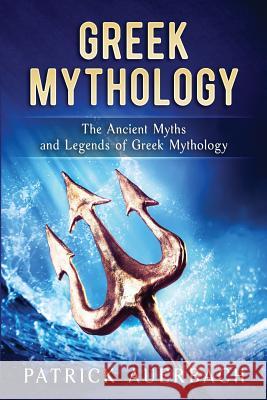Greek Mythology: The Ancient Myths and Legends of Greek Mythology » książka
Greek Mythology: The Ancient Myths and Legends of Greek Mythology
ISBN-13: 9781533658623 / Angielski / Miękka / 2016 / 74 str.
Greek Mythology is the body of myths and teachings that belong to the ancient Greeks, concerning their gods and heroes, the nature of the world, and the origins and significance of their own cult and ritual practices. It was a part of the religion in ancient Greece. The Greeks were polytheistic in their religious beliefs. Polytheistic means they believed in and worshiped many different gods. Modern scholars refer to and study the myths in an attempt to shed light on the religious and political institutions of Ancient Greece and its civilization, and to gain understanding of the nature of myth-making itself.
In Greek Mythology, the gods often represented different forms of nature. Their religion/mythology had no formal structure with the exception of various festivals held in honor of the gods. There was no sacred book or code of conduct to live by. The most powerful Greek gods were known as the Olympians. The Greeks believed the Olympians lived on the highest mountain in Greece, Mount Olympus. The Olympian gods included: Zeus, Hera, Apollo, Aphrodite, Ares, Artemis, Athena, Demeter, Hades, Hermes, Hephaestus, Poseidon and Hestia or later she was replaced in some lists by Dionysus. Greek Mythology is explicitly embodied in a large collection of narratives, and implicitly in Greek representational arts, such as vase-paintings and votive gifts. Greek myth attempts to explain the origins of the world, and details the lives and adventures of a wide variety of gods, goddesses, heroes, heroines and mythological creatures. These accounts initially were disseminated in an oral-poetic tradition; today the Greek myths are known primarily from Greek literature. The oldest known Greek literary sources, Homer's epic poems Iliad and Odyssey, focus on the Trojan War and its aftermath. Scroll to the top of the page and click Add To Cart to read more about this extraordinary chapter of history.
Zawartość książki może nie spełniać oczekiwań – reklamacje nie obejmują treści, która mogła nie być redakcyjnie ani merytorycznie opracowana.











